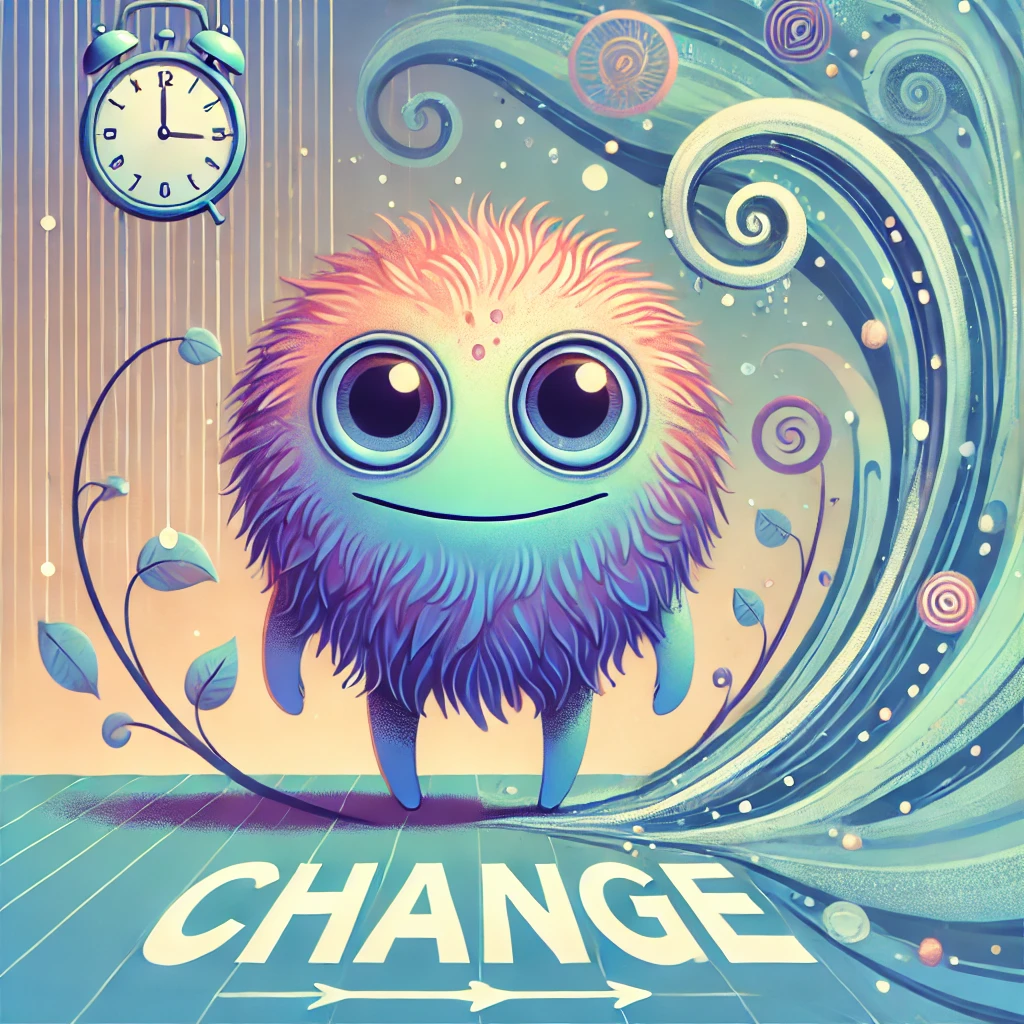Change Hurts! Does it have to?

Change is an inevitable part of life, something I've come to understand deeply through my varied experiences. For over a decade, I served in the military, working closely with countless soldiers from all walks of life. Many of them stepped into my unit terrified of what lay ahead, only to discover strength they didn’t know they possessed. Now, as an educator, I encounter many many college students learning to navigate unfamiliar academic and social landscapes. Throughout these experiences, I’ve seen people grapple with seemingly insurmountable changes—shifting careers, ending relationships, relocating to new cities—each event bringing its own flavor of discomfort and fear.
Why Does Change Feel So Painful?
Change hurts because it disrupts our rhythm. We’re wired to crave stability and familiarity. When circumstances shift, our instinct is to hold on to what we know, focusing on the loss: the comforting routine we once followed, the partner with whom we shared late-night conversations, the job title that gave us our sense of identity. In my own life, I’ve felt this pain acutely. Serving in a disciplined environment like the military and then moving into the more fluid world of academia has taught me just how deeply our expectations and surroundings define us. When those expectations vanish, we’re left exposed and uncertain.
When approached with curiosity and resilience, these moments of unease can lead to transformative insights and achievements.
But does it have to hurt this much? I’ve found that pain is not a requirement, but a symptom of how we frame the experience. When I look back, I recall moments of personal upheaval—times when I had to leave behind communities, comrades, and even personal comforts. The ache was real, but I also discovered a startling truth: each ending cleared space for something new and meaningful to emerge.
Shifting the Narrative: Infinite Possibilities
Instead of dwelling on what’s lost, we can shift focus to what stands to be gained. Consider this: if you’ve recently parted ways with someone important, it’s natural to miss the routines you shared—your favorite show watched side-by-side, the familiar bar where you both unwound. But that same absence creates room for new interests, new communities, and new relationships. When I once faced a significant personal shift, I channeled my energy into exploring new technologies—immersing myself in learning about Large Language Models (LLMs) and cutting-edge software. By diving into something fresh, I not only distracted myself from the sting of loss but opened doors to professional opportunities, potential friendships, and yes, even the possibility of meeting someone who shares my passions.

It’s not just technology or hobbies. Perhaps you’ve never considered taking up a fitness class, joining a local volunteer group, or attending industry conferences that might broaden your horizons. Each leap into unfamiliar territory, each embrace of a new skill or social circle, transforms that initial pain into a platform for reinvention. Whether you choose to embrace these changes or not, the experience is transformative. It’s a chance to learn, grow, and make new connections.
Balancing Adaptability and Commitment
Of course, there’s a balance to be struck. I’ve learned from my time mentoring both soldiers and students that adaptability is a superpower. The principle of “quit often and quit early,” for example, encourages us to exit situations that don’t serve our well-being. It opens the door to alternatives—new jobs, new friendships, new lifestyles—that might fulfill us more deeply.
However, too much quitting can lead to shallow connections. We need to ensure that while we remain open to new possibilities, we also invest time and energy in cultivating depth. It might mean choosing to stick with a challenging relationship or a difficult project a little longer, not out of fear of change, but out of respect for what genuine bonds and long-term goals can bring.
Grounding in Past Successes and Global Perspective
When facing a new wave of change, remember the transitions you’ve already overcome. Every milestone in your life’s journey—whether it was surviving the intensity of basic training in the military, adapting to the freedom of college life, or finding your footing in a new city—proves that you’re not defined by static circumstances. You’re defined by your ability to evolve.

Grounding yourself in your personal history can also help you maintain perspective. I often remind myself that life is a series of waves. Some crests carry us high, others dip low, but the motion is constant. Recognize that change is universal; it’s happening in everyone’s life, all the time. You’re part of a global tapestry where millions of others are also trying to find their equilibrium amid shifting sands. Connecting with others who share their own stories—whether through local support groups, online forums, or even professional networks—can reinforce that you’re not alone.
Embracing the Duality of Change
Change carries a dual nature: it can feel catastrophic and liberating, punishing and rewarding, fearful and exciting. I’ve had the privilege of seeing thousands of individuals from diverse backgrounds face life-altering transitions. Across socioeconomic statuses, races, genders, and identities, I’ve observed that what differentiates those who flourish from those who stagnate is the willingness to embrace the unknown and reframe adversity as an opening rather than a closing.

From my own perspective—having lived multiple “lives” across military, academic, and communal environments—I know that I’m not immune to the pain of change. But I’ve learned to interpret that pain differently. Instead of treating it as a sign that something’s wrong, I see it as a cue that I’m about to learn something new about myself. This reframing doesn’t numb the discomfort entirely, but it converts fear into a sense of adventure, inviting me to ask, “What’s next?”
Harnessing Change for Growth
As someone who has guided thousands of soldiers, mentored countless students, and navigated my own shifting tides, I can attest: change will keep coming. It’s an inevitable constant in life, touching everything from our careers and relationships to our personal passions. But by reframing how we see it—from focusing on what’s lost to celebrating what could be—change can cease to be a source of paralyzing pain and become a catalyst for becoming someone stronger, wiser, and more resilient.
Take small steps toward this mindset shift. Try a new hobby, engage in a new network, or read up on success stories from others who’ve transformed their lives after major setbacks. Remember that you hold the power to define what change means to you.
Change hurts—but it doesn’t have to! It can heal, expand, and elevate you, if you let it.
Some Resources
- Positive thinking: Stop negative self-talk to reduce stress. (Mayo Clinic, n.d.) Mayo Clinic
- How to stop languishing and start finding flow. (Grant, A., 2023) TED
- Resilience. (American Psychological Association, n.d.) APA
- Stress. (American Psychological Association, n.d.) APA
- The Power of Knowing When to Quit. (Psychology Today, n.d.) Psychology Today
- How to Let In New Perspectives. (Tania Israel, 2023) Greater Good Science Center at UC Berkeley
- What Having a Growth Mindset Actually Means. (HBR, 2016) Harvard Business Review